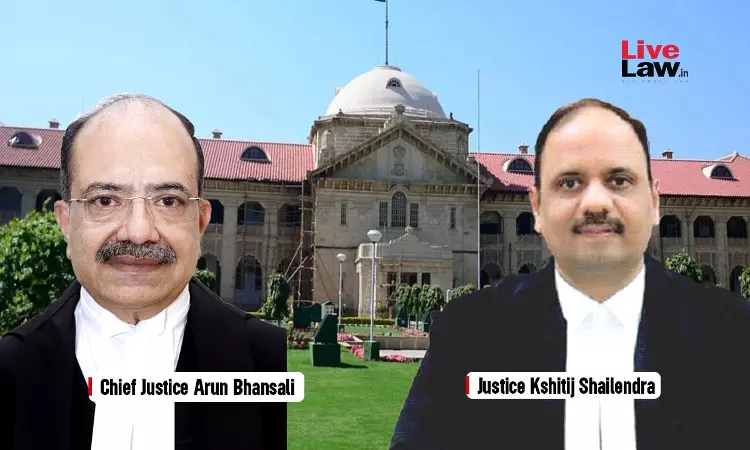JJ Act | Juvenile's Conviction Not To Be Treated As Disqualification For Appointment In Services: Allahabad High Court
Upasna Agrawal
31 Oct 2025 2:35 PM IST

Placing reliance on erstwhile Section 19 of the Juvenile Justice (Care and Protection of Children) Act, 2000 which is almost identical to Section 24 of the Juvenile Justice (Care and Protection of Children) Act, 2015, the Allahabad High Court has held that juvenile's conviction under the Act is not to be treated as disqualification for appointment in services.
Section 19 of the Juvenile Justice (Care and Protection of Children) Act, 2000 provides that notwithstanding anything contained in any other law, a juvenile who has committed an offence and has been dealt with under the provisions of this Act shall not suffer disqualification, if any, attaching to a conviction of an offence under such law.
The bench of Chief Justice Arun Bhansali and Justice Kshitij Shailendra held
“A bare perusal of Section 19(1) of the Act makes it clear that it starts with a 'non-obstante clause' excluding the applicability of any other law in the matter of a juvenile and clearly provides that a juvenile who has committed an offence and has been dealt with under the provisions of the Act, shall not suffer disqualification attaching to a conviction of an offence under such law. It means that even if a juvenile is convicted for an offence committed by him, his conviction would not be treated as a disqualification.”
Pundarikaksh (employee) particiapted in Recruitment Drive, 2019 initiated by the department by applying for the post of P.G.T.. Being successful, he was issued a letter of appointment by Jawahar Navodaya Vidyalaya, Gauriganj, Amethi. 2 months later a complaint was filed against him regarding concealment of criminal history while applying for appointment and he was asked to reply.
After a detailed inquiry, he was dismissed from service. Against termination, employee approached the Central Administrative Tribunal, Allahabad Bench, Allahabad whereby his application was allowed and the department was directed to conduct fresh inquiry as per the judgment of the Supreme Court in Avtar Singh vs. Union of India and others.
Against this order, various parties including the employee approached the High Court.
The Court observed that though the Act of 200 had been repealed, Section 111 of the 2015 Act provided that any action taken under the 2000 Act shall be deemed to be taken under the corresponding provisions of the 2015 Act.
Noting that the offence was committed on 18.04.2011 and the FIR was also lodged in 2011, prior to commencement of the 2015 Act, the Court held that
“We are making these observations in the light of Section 24 of the Act of 2015, which is identical to Section 19 of the Act of 2000 providing that even conviction of a juvenile shall not suffer disqualification qua his services, however, there is an addition in the new Act in terms of proviso to sub-section (1) of Section 24 wherein a child who has completed or is above the age of 16 years and is found to be 'in conflict with law' by the Children's Court under Section 19(1)(i) of the new Act, the protection granted under sub-section (1) of Section 24 would not be available to him.”
It held that the proviso to Section 24(1) of the 2015 Act will not be applicable in this case as the offence took place before commencement of the Act when the Act of 2000 was in force, which did not contain the proviso.
Referring to the judgment of the Apex Court in Union of India and others vs. Ramesh Bishnoi, the Court held that asking the employee to disclose the offence committed as a juvenile was violation of right to privacy and right to reputation.
The Court held that once the Tribunal had recorded a finding regarding the employee's juvenility, it ought not to have directed for fresh inquiry. Setting aside the order of the Tribunal, the Court directed employee's reinstatement in service with all consequential benefits.
Case Title: Pundarikaksh Dev Pathak Versus Union of India and 3 others [WRIT - A No. - 9462 of 2025]


